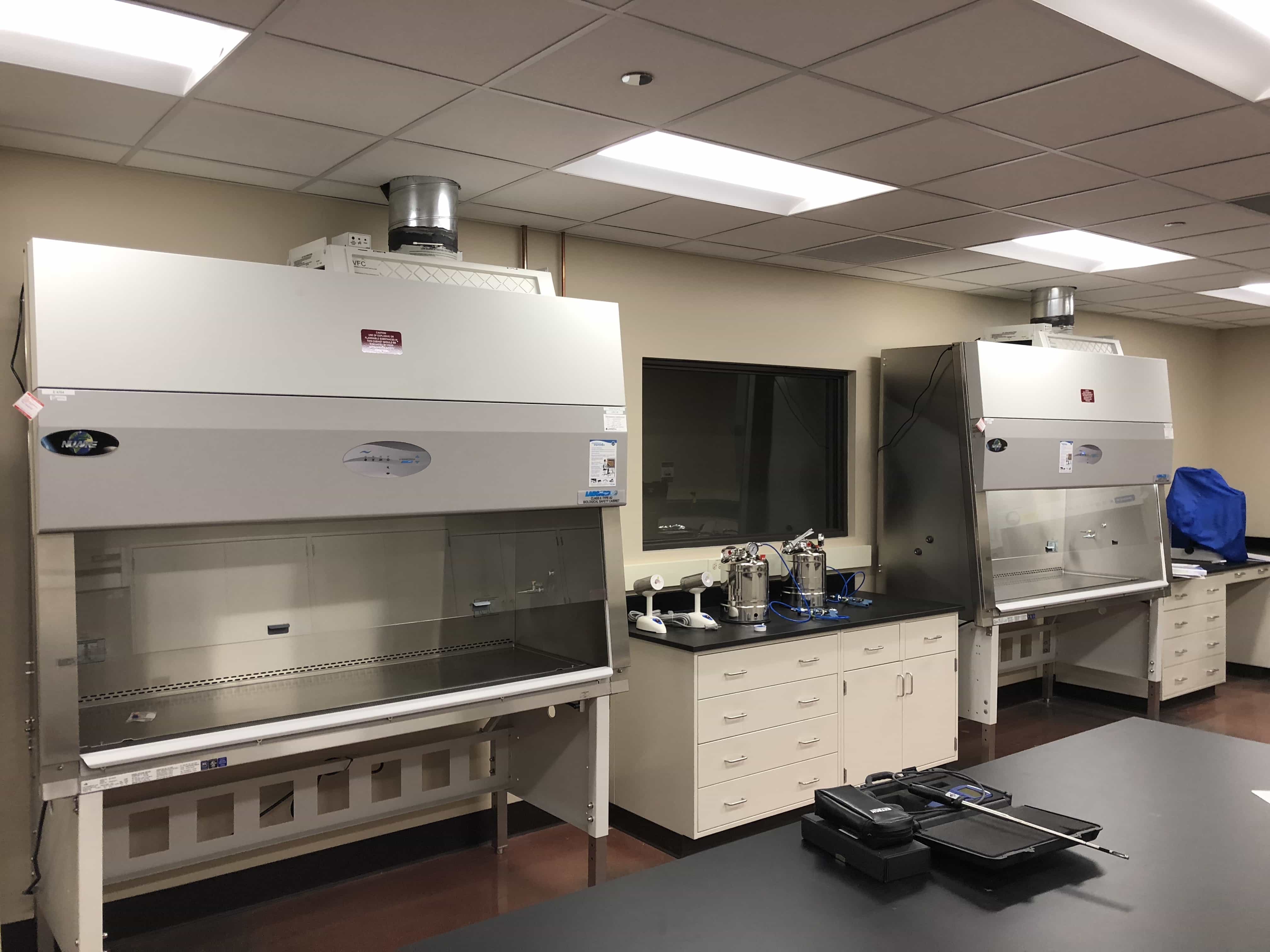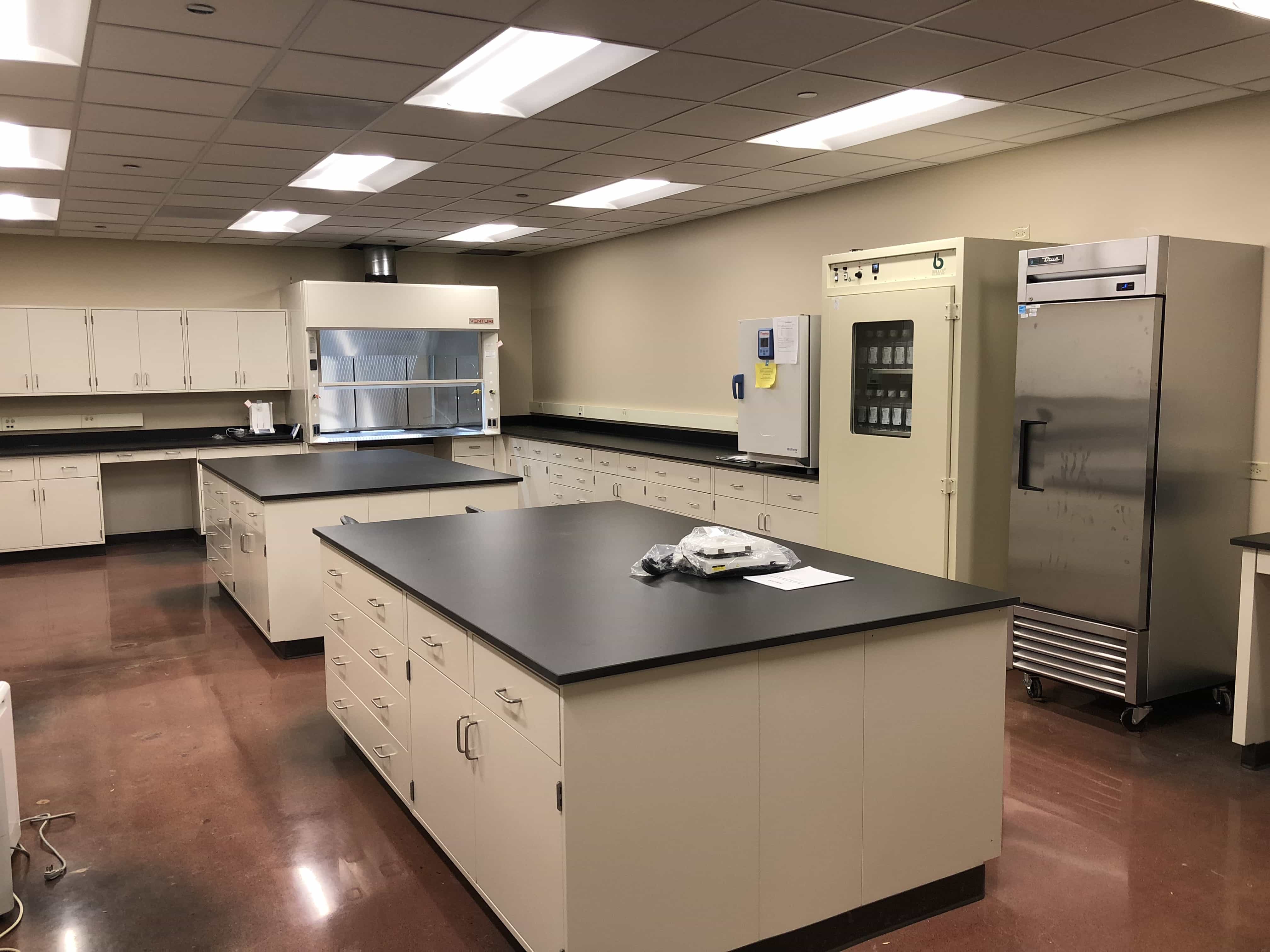Nelson Labs is pleased to announce the expansion of testing capabilities and services at our Itasca, Illinois facility to include Particulate Testing and Water Systems Testing and Validation. This new expansion is an extended service to the Itasca facility clients which meets Good Laboratory Practices (GLP).
Particulate Testing:
 Particulate analysis testing includes procedures for removing, counting, and sizing particulate contaminants on or in medical devices and pharmaceutical products. This testing is useful for determining the amount of residual particulate matter coming from the manufacturing environment and use of the
Particulate analysis testing includes procedures for removing, counting, and sizing particulate contaminants on or in medical devices and pharmaceutical products. This testing is useful for determining the amount of residual particulate matter coming from the manufacturing environment and use of the
medical device or pharmaceutical product as well as identifying the potential sources of particulates.
Nelson Labs performs United States Pharmacopeia (USP) recommended methods: Light Obscuration per USP <788>. Additionally, Nelson Labs tests to EN 45502 and ISO 14708 for implantable devices, USP <789> for ophthalmic solutions, ISO 8536-4 and ISO 1135-4 for gravity-fed infusion devices and accessories, ANSI/AAMI AT6 for autologous transfusion devices, and ANSI/AAMI TIR 42 for vascular devices.
- Visit the Nelson Labs website to learn more about the particulate testing.
Water System Testing and Validation:
 Water tests are used to evaluate the level of impurities in a water system. Because water is a significant manufacturing component, microbial control of water systems is a requirement of all Good Manufacturing Practices (GMP). Testing can be performed on source water, pretreated water (softened and carbon bed treated), principle treated water (Reverse Osmosis, distilled or deionized), and final product water.
Water tests are used to evaluate the level of impurities in a water system. Because water is a significant manufacturing component, microbial control of water systems is a requirement of all Good Manufacturing Practices (GMP). Testing can be performed on source water, pretreated water (softened and carbon bed treated), principle treated water (Reverse Osmosis, distilled or deionized), and final product water.
Nelson Labs performs water testing in accordance with United States Pharmacopeia (USP) test methods following USP <1231> Water for Pharmaceutical Purposes.
Our panel of water tests includes:
- Bacterial Endotoxin Testing (BET) – an in vitro assay for detection and quantitation of bacterial endotoxins, a component of the cell wall of gram-negative bacteria. Routine monitoring of water systems can help to ensure that the process does not contribute endotoxins to the final product.
- Total Organic Carbon (TOC) Testing – the measurement of TOC is important as it is a highly sensitive, parts per billion (ppb), test method for gross screening of organic material in water typically indicative of organism presence in high counts. Routine monitoring of TOC in water systems can help to ensure that the process does not contribute to TOC on the final product.
- Conductivity Testing – electrical conductivity in water is a measure of the ion-facilitated electron flow through it. Ionic impurities such as metal salts, chlorine, and ammonium can damage system components and result in residuals or damage on the final product. Routine monitoring of conductivity in water systems can help to ensure that the process does not contribute to ionic impurities on the final product.
- pH Testing (as part of a purified water study) – a measure of the acidity or alkalinity of water, the pH test detects the relative amount of free hydrogen and hydroxyl ions in the water. pH, scaled from 0 – 14, with 7 being neutral, determines the solubility of the water. Excessively high or low pH levels can damage sensitive product materials.
- Microbiological Testing – Water samples for microbial testing are filtered using a 0.45 micron filter membrane to capture microorganism. The membrane is then applied to an agar plate. After incubation, the colony-forming units are counted to give the organisms per milliliter. Analysis is generally performed by the test method described in the Standard Methods for Examination of Water and Wastewater, which indicates the use of membrane filtration and R2A agar. Routine monitoring of the microbial content in water systems can help to ensure that the process does not contribute to bioburden on the final product.
Nelson Labs customizes water test plans to meet the precise needs of each customer. Our expert advisory team can assist in developing routine sampling plans, establishing test frequency, and performing failure investigations as needed. Our advisory team offers the capability to perform a full water system validation – including assistance in writing IQ/OQ/PQ protocols and developing post-validation routine monitoring programs and associated process controls.
For more information about our Itasca Laboratory Particulates Testing and Water System Testing and Validation offerings, contact your Nelson Labs Account Manager or our Service Center at [email protected] or 801-826-2088.


